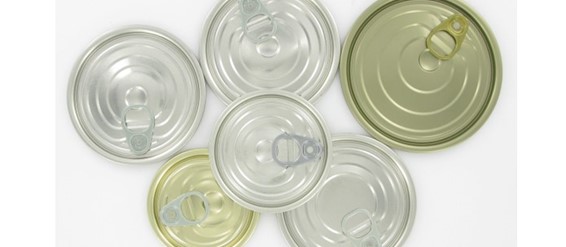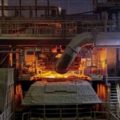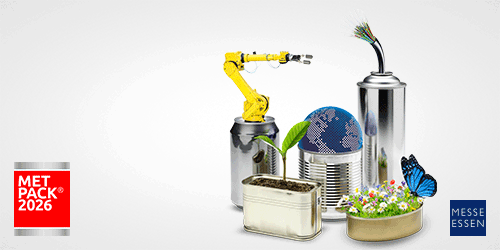Easy-open ends (EOEs) were first introduced in Europe in the 1990s and are now used on more than two-thirds of food cans sold in Europe. Trivium was one of the first to introduce pre-cut notches in the EOE. Now, the new steel grade has reduced the tear strength of easy-open ends improving productivity for can makers.
In this way, the pre-cuts allow the lid to deform and open easily. At the same time, the lid remains strong, resisting the high level of pressure that builds up inside the can as it goes through the sterilization process.
Trivium is a European leader in the production of metal packaging and has worked with ArcelorMittal Europe for decades. When Trivium noticed a variation in the quality of the coils they used to make their easy-open ends, the can maker immediately alerted ArcelorMittal. This wake-up call led to a new project that not only improved coil quality and enhanced productivity, but also resulted in the development of a new steel grade and opening experience for consumers.
Fabrice Leboucher, Trivium’s R&D project and innovation manager for EOE and components explains that “ArcelorMittal suggested a visit to our plant so they could better understand the problems we were experiencing.” Over the following months, the ArcelorMittal team worked closely with Trivium to find a solution. “We quickly realized why Trivium needed ArcelorMittal to improve quality, but we also understood that they wanted to drastically reduce the tear strength of their EOE,” adds Tété Dossah, head of Packaging Technical Coordination for Northern Europe and Export at ArcelorMittal.
“Together we tested different coils of the new steel to understand precisely how they performed in our production. The results were very positive and have led to a significant increase in productivity,” confirms Fabrice Leboucher.
The new steel grade was further modified to reduce the thickness of the EOEs. One of the key tests of the new EOE steel grade was its implementation in vacuum-packed cans. “The steel we use must be of very high quality or the EOE could implode when opened. An implosion pushes the EOE panel into the can and prevents the consumer from accessing the contents. Our tests showed that the metallurgy of the new EOE grade is very stable. There is no risk of an implosion occurring.”
The new steel grade is already in use at Trivium’s can manufacturing plant in Erftstadt (Germany) and in Deventer (The Netherlands). Now both partners are working to create even thinner easy-open lids that are lighter and use fewer resources.










